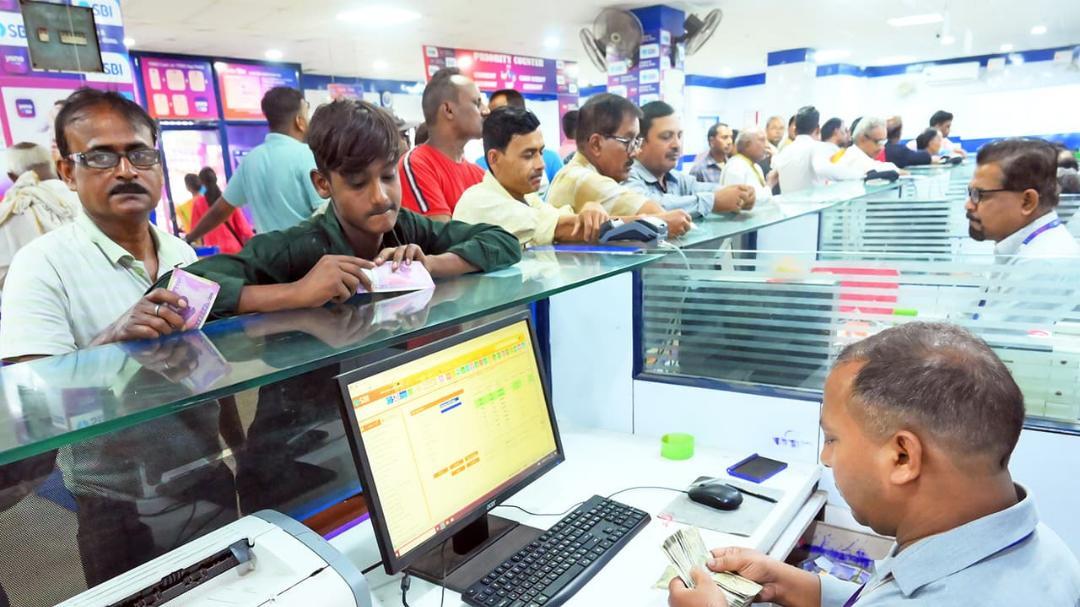
RBI’s government securities holdings jump to 14.2%: SBI report
The Reserve Bank of India’s (RBI) share in government securities has witnessed a significant increase, rising to 14.2% in June 2025 from 11.9% last year, according to a recent report by the State Bank of India (SBI). This surge in government securities holdings by the RBI is a notable development, especially considering the current economic landscape. In this blog post, we will delve into the details of the SBI report, explore the implications of the RBI’s increased holdings, and examine the potential impact on the bond market.
The SBI report highlights that the RBI’s increased holdings of government securities have been accompanied by a reduction in exposure by banks. This shift in holdings is significant, as it indicates a change in the way financial institutions are approaching government securities. While the RBI has increased its holdings, banks have become more cautious, reducing their exposure to government securities. On the other hand, insurance companies have maintained a stable holding, indicating a consistent approach to investing in government securities.
The increase in the RBI’s government securities holdings can be attributed to several factors. One of the primary reasons is the heavy central and state borrowings that are expected in the coming months. To finance these borrowings, the government will need to issue more securities, which will lead to an increase in the supply of government securities in the market. The RBI, as the central bank, plays a crucial role in managing the money supply and maintaining financial stability. By increasing its holdings of government securities, the RBI can help to absorb some of the excess supply and prevent a sharp increase in bond yields.
However, the surge in government securities holdings by the RBI also has implications for the bond market. With the central bank holding a larger proportion of government securities, the market may become more sensitive to changes in the RBI’s monetary policy. The RBI’s actions can influence the bond yields, and an increase in holdings can lead to a decrease in bond yields. On the other hand, a reduction in holdings can lead to an increase in bond yields. The SBI report notes that bond yields may remain rangebound due to the heavy borrowings ahead, which could lead to a stable interest rate environment.
Another factor that has contributed to the increase in the RBI’s government securities holdings is the central bank’s forex interventions. The RBI has been actively managing the foreign exchange market to maintain a stable exchange rate. By intervening in the forex market, the RBI has tightened liquidity, which has prompted fresh Open Market Operations (OMO) moves. OMO is a tool used by the RBI to manage liquidity in the market by buying or selling government securities. The RBI’s OMO moves can influence the bond yields and affect the overall liquidity in the market.
The SBI report also highlights the importance of the RBI’s role in maintaining financial stability. The central bank’s actions can have a significant impact on the economy, and its decisions regarding government securities holdings are crucial in managing the money supply and maintaining a stable interest rate environment. The report notes that the RBI’s increased holdings of government securities will help to maintain stability in the bond market and prevent any sharp increases in bond yields.
In conclusion, the RBI’s increased holdings of government securities to 14.2% in June 2025 is a significant development that has implications for the bond market and the overall economy. The SBI report highlights the factors that have contributed to this increase, including heavy central and state borrowings ahead and the RBI’s forex interventions. The report also notes that bond yields may remain rangebound due to the heavy borrowings ahead, which could lead to a stable interest rate environment. As the central bank continues to play a crucial role in maintaining financial stability, its decisions regarding government securities holdings will be closely watched by market participants.
The increase in the RBI’s government securities holdings is a testament to the central bank’s commitment to maintaining a stable financial environment. The RBI’s actions will continue to influence the bond market, and its decisions will have a significant impact on the economy. As the economic landscape continues to evolve, it will be interesting to see how the RBI’s government securities holdings change and how the bond market responds to these changes.
For now, the SBI report provides valuable insights into the RBI’s government securities holdings and the factors that have contributed to the increase. The report highlights the importance of the RBI’s role in maintaining financial stability and the potential implications of its actions on the bond market. As we move forward, it will be essential to continue monitoring the RBI’s government securities holdings and their impact on the economy.





